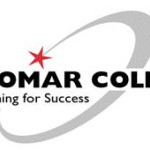- Industry: Education
- Number of terms: 12355
- Number of blossaries: 0
- Company Profile:
Founded in 1946, Palomar College is a public two-year community college in the city of San Marcos, located in north San Diego County, California. Palomar offers over 300 associate degree, certificate programs and is designated by the U.S. Department of Education as an Hispanic-Serving Institution ...
Anatomical structures in different species that are similar due to descent from a common ancestor that had them. Homologies are also referred to as homologous structures or features. See cladistics.
Industry:Anthropology
Anatomical features that have the same form or function in different species that have no known common ancestor.
Industry:Anthropology
An X-linked genetically inherited color vision deficiency in which an individual cannot perceive red and green in the same way as people with normal vision. This condition most often afflicts males.
Industry:Anthropology
An X-linked genetically inherited recessive disease in which one or more of the normal blood clotting factors is not produced. This results in prolonged bleeding from even minor cuts and injuries. Swollen joints caused by internal bleeding are a common problem for hemophiliacs. Hemophilia most often afflicts males.
Industry:Anthropology
An X-linked genetically inherited color vision deficiency in which an individual cannot perceive red and green in the same way as people with normal vision. This condition most often afflicts males.
Industry:Anthropology
An individual who is genetically two people. Fully chimeric individuals are usually the product of two fertilized ova fusing into a single embryo shortly after conception.
Industry:Anthropology
An Upper Paleolithic technique for making blade flakes. After first preparing a rock core, a hard pointed punch (usually made from a deer antler tip) is placed near the edge of a striking platform and a percussion blow with a hammer to the top of the punch sends a controlled shock wave into the core which removes a thin, narrow blade flake. Upper Paleolithic cores prepared for this technique were usually conical or cylindrical in shape with a relatively flat perpendicular striking platform at one end.
Industry:Anthropology
An unborn child during the later stages of pregnancy. In humans, an embryo usually becomes a fetus after the 8th week of gestation. Unlike embryos, fetuses have clearly recognizable physical characteristics of the species and gender.
Industry:Anthropology
An organic molecule that is a building blocks of proteins. There are at least 20 different kinds of amino acids in living things. Proteins are composed of different combinations of amino acids assembled in chain-like molecules. Amino acids are primarily composed of carbon, oxygen, hydrogen, and nitrogen.
Industry:Anthropology
An organ in the uterus of a mammal that develops from the chorion of an embryo during gestation. The placenta is connected to an unborn child by the umbilical cord. The placenta provides oxygen, nutrients, and antibodies for a fetus. Following birth the placenta and umbilical cord are naturally expelled from the uterus as the "after birth. "
Industry:Anthropology
